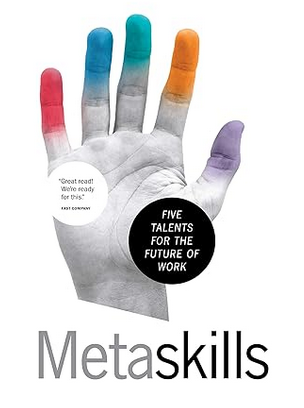Is the current Educational System sufficient to meet the modern day challenges posed by the threat of AI and Robots taking away the repeatative and mundane jobs ?
Do the current Educational System teach creativity or they just teach to copy , memorize, obey, and keep score , pretty much the same qualities we look for in machines ?
What skills will be required for the humans in the age of Artificial Intelligence and Robots ?
The current educational system was largely designed during the Industrial Revolution to meet the needs of a factory-based economy. Its primary goal was to produce obedient, punctual, and standardized workers who could perform repetitive tasks efficiently. This system emphasized rote memorization, conformity, and compliance—qualities that were valuable in an assembly-line workforce but are increasingly obsolete in today’s creative and innovation-driven economy.
By prioritizing memorization and obedience over critical thinking, creativity, and problem-solving, the system inadvertently stifles individuality and genius. Students are trained to follow instructions rather than question, explore, or invent. This approach discourages the very qualities that lead to breakthroughs and innovation.
As technology advances, machines and artificial intelligence are becoming increasingly capable of performing tasks that were once the domain of humans. Machines excel at memorization, repetition, and following instructions—precisely the skills that traditional education has emphasized. This has led to a growing displacement of human workers in industries ranging from manufacturing to services.
The irony is that the skills we’ve been taught to value—obedience, memorization, and rote learning—are now being outperformed by machines. Meanwhile, the uniquely human qualities of creativity, emotional intelligence, and innovative thinking are undervalued and underdeveloped in our educational systems. This mismatch between what we teach and what the future demands has left many people ill-equipped to thrive in a world where machines handle routine tasks.
To prepare for a future where machines handle routine tasks, education must shift its focus from producing obedient workers to nurturing creative, adaptable, and resilient individuals. This requires:
Emphasizing Creativity and Innovation: Encouraging students to think outside the box, take risks, and develop original ideas.
Fostering Critical Thinking: Teaching students to analyze, question, and synthesize information rather than simply memorize it.
Promoting Collaboration and Emotional Intelligence: Developing interpersonal skills and empathy, which are difficult for machines to replicate.
Encouraging Lifelong Learning: Preparing students to adapt to new technologies and industries by cultivating a love of learning and curiosity.
Now , the question comes up is how the creativity and innovation , critical thinking , collaboration and emotional intelligence and lifelong learning will be developed in the humans. What skills will be required for that ?
In his book Meta Skills: Five Talents for the Future of Work , Marty Neumeier provides a thought-provoking and timely exploration of the essential skills needed to thrive in an increasingly complex and fast-changing world. Known for his expertise in branding and design thinking, Neumeier shifts his focus to the broader landscape of work and innovation, offering a compelling framework for personal and professional growth.
The book centers on five meta-skills—feeling, seeing, dreaming, making, and learning—which Neumeier argues are critical for navigating the future of work. These skills are not just technical abilities but higher-order capacities that enable individuals to adapt, innovate, and lead in a world dominated by automation and rapid technological change. Below is a deeper dive into each of these meta-skills:
1. Feeling: The Power of Empathy and Intuition
Neumeier emphasizes that feeling is the foundation of all meta-skills. In a world increasingly driven by data and algorithms, the ability to connect with others on an emotional level and trust one’s intuition is irreplaceable. Feeling involves empathy—understanding the needs, desires, and pain points of others—as well as self-awareness, which allows individuals to navigate complex social dynamics and make decisions that align with their values. Neumeier argues that empathy is not just a “soft skill” but a critical tool for innovation, as it helps uncover unmet needs and create solutions that resonate deeply with people.
2. Seeing: Systems Thinking and Pattern Recognition
Seeing is the ability to perceive the bigger picture and understand how different elements within a system interact. Neumeier describes this as a combination of systems thinking and pattern recognition. In a world of interconnected challenges, the ability to see relationships, spot trends, and anticipate consequences is invaluable. This meta-skill enables individuals to move beyond linear thinking and embrace complexity, making it easier to solve problems and identify opportunities that others might miss. Neumeier encourages readers to cultivate this skill by practicing mindfulness, observing their surroundings, and seeking out diverse perspectives.
3. Dreaming: The Art of Imagination and Vision
Dreaming is the meta-skill of imagination and vision. It’s about thinking beyond the status quo and envisioning what could be. Neumeier argues that creativity is not a rare gift but a skill that can be developed through practice. Dreaming involves generating bold ideas, challenging assumptions, and imagining future possibilities. This skill is particularly important in a world where innovation is the key to staying competitive. Neumeier encourages readers to embrace curiosity, ask “what if?” questions, and create a safe space for experimentation and play.
4. Making: Turning Ideas into Reality
While dreaming is about generating ideas, making is about bringing those ideas to life. Neumeier describes this meta-skill as the ability to prototype, test, and refine solutions in the real world. It’s about being hands-on and action-oriented, whether you’re designing a product, building a business, or creating art. Making requires a blend of creativity, technical skill, and perseverance. Neumeier highlights the importance of embracing failure as part of the process, as it provides valuable feedback and leads to better outcomes. This meta-skill is particularly relevant in today’s fast-paced environment, where the ability to iterate quickly is a competitive advantage.
5. Learning: The Skill of Continuous Adaptation
In a world of constant change, learning is the most critical meta-skill of all. Neumeier defines this as the ability to acquire new knowledge, unlearn outdated practices, and adapt to new circumstances. Learning is not just about formal education but about cultivating a growth mindset and staying curious throughout life. Neumeier emphasizes the importance of learning by doing, seeking feedback, and staying open to new ideas. He also highlights the role of metacognition—thinking about how we think—as a way to improve our learning processes. In a future where many jobs will be automated, the ability to learn and adapt will be what sets humans apart.
Strengths and Weaknesses of the Book
Neumeier’s writing is concise, engaging, and filled with practical insights, making complex ideas accessible to a wide audience. His background in design shines through in the book’s structure and presentation, with diagrams and illustrations that reinforce key concepts. The real-world examples and anecdotes bring the meta-skills to life, showing how they can be applied in various contexts.
However, some readers might find the book’s focus on high-level concepts lacking in actionable steps. While Neumeier provides a clear framework, those looking for a detailed, step-by-step guide to developing these skills may need to supplement their reading with additional resources. That said, the book serves as an excellent starting point for anyone looking to future-proof their career or organization.
In a Nutshell
Meta Skills is a visionary and inspiring read that challenges conventional thinking about work and success. Marty Neumeier’s insights are both practical and profound, offering a roadmap for thriving in the 21st century. Whether you’re a business leader, creative professional, or simply someone looking to stay relevant in a rapidly changing world, this book is a valuable addition to your library. It’s a call to embrace our uniquely human talents—feeling, seeing, dreaming, making, and learning—and harness them to create a better future. By developing these meta-skills, we can not only adapt to change but also shape it, ensuring that we remain indispensable in an age of automation and uncertainty.
I hope you have enjoyed reading the article , to go deeper into realms of five skills which Marty Neumeier explores in his book , you should read the full book . The book is worth reading your time to expand your knowledge on Meta Skills .

Image Credit : Photo by Tim Mossholder
